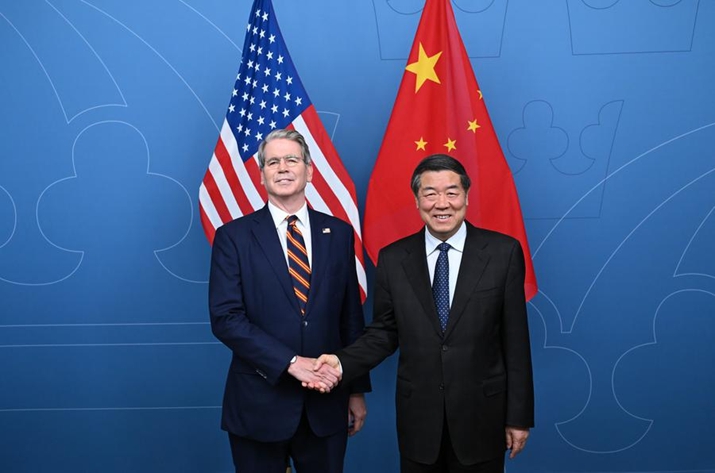| World |
| Dialogue and mutual benefit key to long-term stability in China-U.S. trade ties | |
|
|
 In the latest round of China-U.S. economic and trade talks in Stockholm from July 28 to 29, the two sides held candid, in-depth and constructive exchanges over important topics of mutual interest, sending a clear signal that the world's two largest economies remain committed to dialogue, managing differences and fostering global stability. Based on the meeting consensus, both sides will continue pushing for the continued extension by 90 days of the pause on 24 percent of reciprocal tariffs of the U.S. side, as well as counter measures of the Chinese side. The progress achieved in the talks once again demonstrates that as long as both sides follow the important consensus reached by the two heads of state and uphold the principle of equal dialogue and consultation, they can effectively manage differences, build mutual trust, and promote the bilateral economic and trade relationship toward a healthy, stable and sustainable direction. During the talks, the Chinese side emphasized that the essence of China-U.S. economic and trade relations lies in mutual benefit. China and the United States gain from cooperation and lose from confrontation. The U.S. side also said that a stable U.S.-China economic and trade relationship is of great significance to the economies of both countries and the world at large. This shared recognition has formed a key foundation that allowed the two sides to come together, hold meaningful dialogue and make tangible progress. For decades, the two largest economies have been deeply integrated, with extensive common interests and vast potential for cooperation in the economic and trade field. Such strong economic complementarity cannot be easily severed by any man-made tariff barriers. China approaches the consultations with 100 percent sincerity while firmly upholding its non-negotiable principles and consistently emphasizing the need to respect each other's core concerns. China's position on the "reciprocal tariffs" unilaterally imposed by the United States is clear and consistent: they are, in essence, acts of unilateralism and protectionism that violate World Trade Organization rules. China is willing to properly handle differences and find solutions through dialogue and consultation. However, such dialogue must be conducted on an equal footing. China's right to development is inalienable, and its determination to safeguard its core interests and development rights remains unwavering. Any attempt to pressure China into making concessions on matters of principle is unrealistic. Some of the deeper issues in China-U.S. economic and trade relations cannot be resolved overnight, but progress begins with concrete steps. It is hoped that the United States will move in the same direction as China, turning the important consensus reached by the two heads of state and the positive momentum from the talks into practical actions. By doing so, the two sides can help stabilize their economic ties, build greater mutual trust, reduce misjudgments, deepen cooperation, and bring the relationship back on a path of sound and steady development as soon as possible. |
|
||||||||||||||||||||||||||||||
|